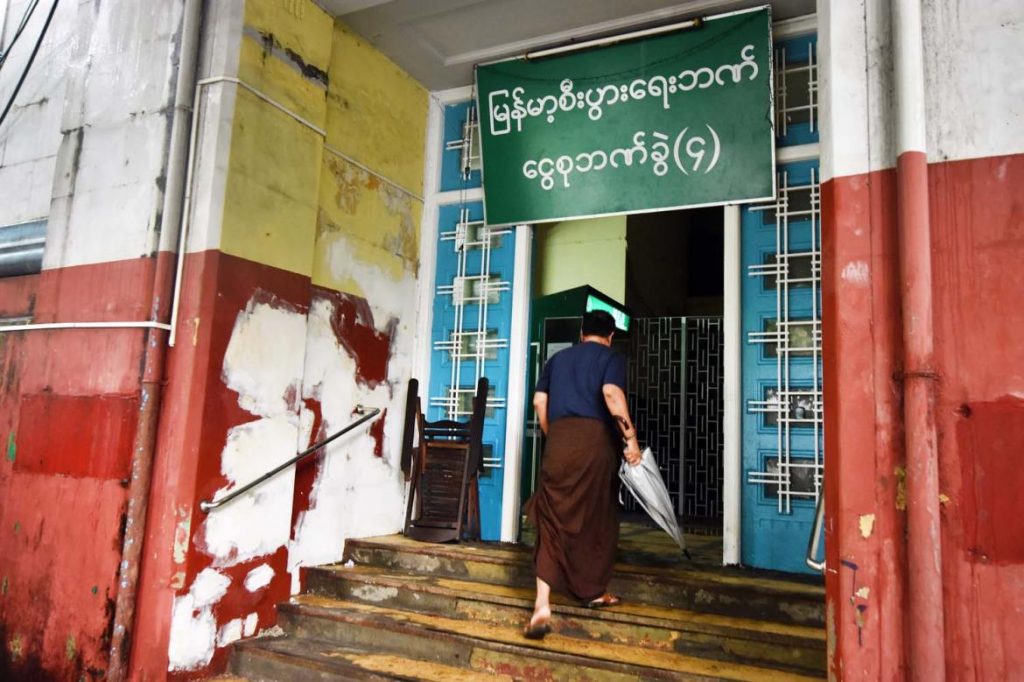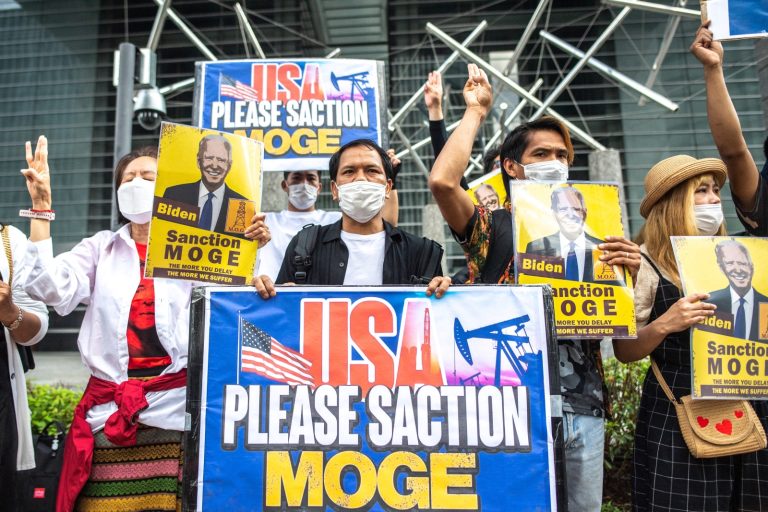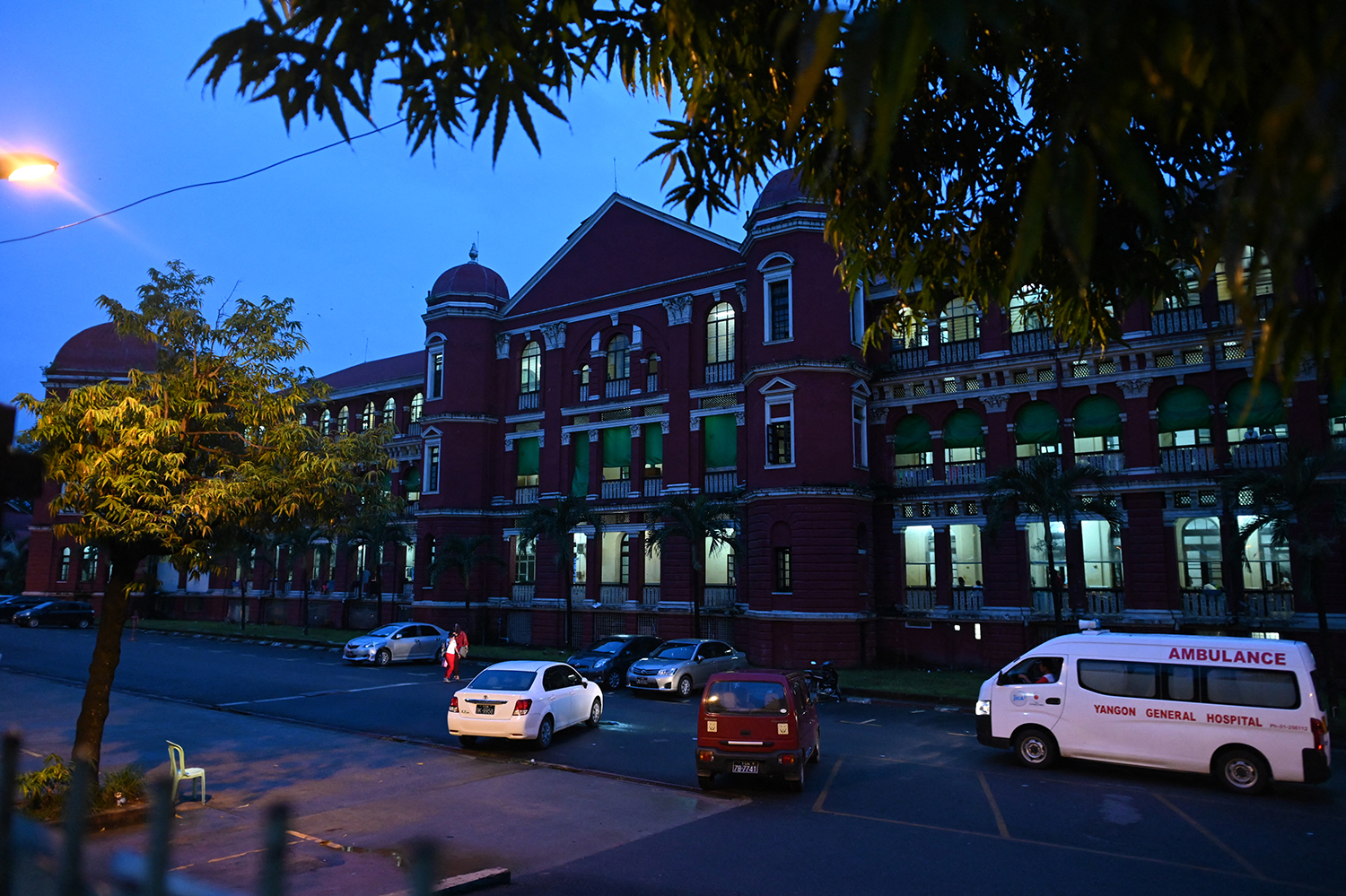On July 10 the Natural Resource Governance Institute and National League for Democracy-aligned think-tank Renaissance Institute released a groundbreaking report.
State-owned Economic Enterprise Reform in Myanmar: The Case of Natural Resource Enterprises calls for sweeping changes at state-owned enterprises, including improved accountability and oversight. Co-author Mr Andrew Bauer, a consultant with NRGI and formerly its senior economic analyst, tells Frontier about the problems with SOEs going off-budget, why previous reform attempts have failed and how SOE profits could be better used.
You were given rare access to government data and agencies to compile this report, and some of the things you’ve uncovered are quite unsettling and potentially embarrassing. How did the report come about?
We were speaking with Renaissance Institute for a long time and there was an interest on the part of them to work on state-owned enterprise reform, especially in the natural resource sector. About 18 months ago we received permission from the Ministry of Planning and Finance to begin looking at their financial forms at SOEs, to ask questions and to try to get to the bottom of how the system functions and what are the operations and activities at SOEs, and then to analyse their finances.
There’s often a lot of focus on the numbers because the money we’re talking about here is quite high – SOEs had K11.5 trillion in their savings accounts as of January 2017, and have lost several billion dollars due to currency depreciation. But what other concerning issues did you uncover?
The underlying issue is that the state-owned enterprises in Myanmar have been performing poorly by international standards. What we mean by that is they are not efficient. Costs are in some cases inexplicably high. They collect a lot less revenue than they should, especially those that are supposed to collect revenue, like Myanmar Gems Enterprise. Based on most measurable indicators they are underperforming compared to state-owned enterprises in Thailand, Vietnam, China, and basically any ASEAN partner. This situation has been ongoing since the 1990s and barely improved, if at all, since then.
So what really needs to happen is an assessment of SOEs to figure out what they do – because many of them are not SOEs in the regular sense, they’re regulators, tax collectors, public service enterprises and of course there are some that are profit-making entities – and then figure out what to do [with them].
And then we need to improve oversight – for example, make sure that contracts can’t be given out by a three-person management committee with no oversight, that they represent value for money for the Myanmar taxpayer. We need to make sure that when they say they’re collecting taxes, they actually collect those taxes, which in many cases they don’t.
Support more independent journalism like this. Sign up to be a Frontier member.
We need to make sure that when they say they’re going to be producing garments or railroads, that you actually get garments and railroads. When IWT [Inland Water Transport] says it’s going to provide public transport on boats, that the service they provide is a good service. Right now, none of that is happening and that comes down to this system that allows for managers of these SOEs to essentially do what they wish and for the entire system, line ministries, oversight bodies like the Auditor General’s Office, to [let them] get away with that.
Among some of the oversight bodies – for example, the Auditor General’s Office – there’s a lot of box checking without a lot of analysis. Again, that’s not the fault of these sometimes very dedicated government officials – that is their job. Their job is to make sure that reports are filled out and reports go up to the right people. Whether those reports are useful or make any sense is not always their job.
Now I don’t blame staff in these ministries and I don’t blame the staff from these agencies. They are hamstrung by rules that are outdated. They don’t have the capacity because they don’t have the resources they need. The system has been built in a way for them not to succeed. So what this government hopefully can do is turn that around. Now, it’s like turning around the Titanic. It’s going to take a long time to fix the hole and turn the ship around, but it can be done.
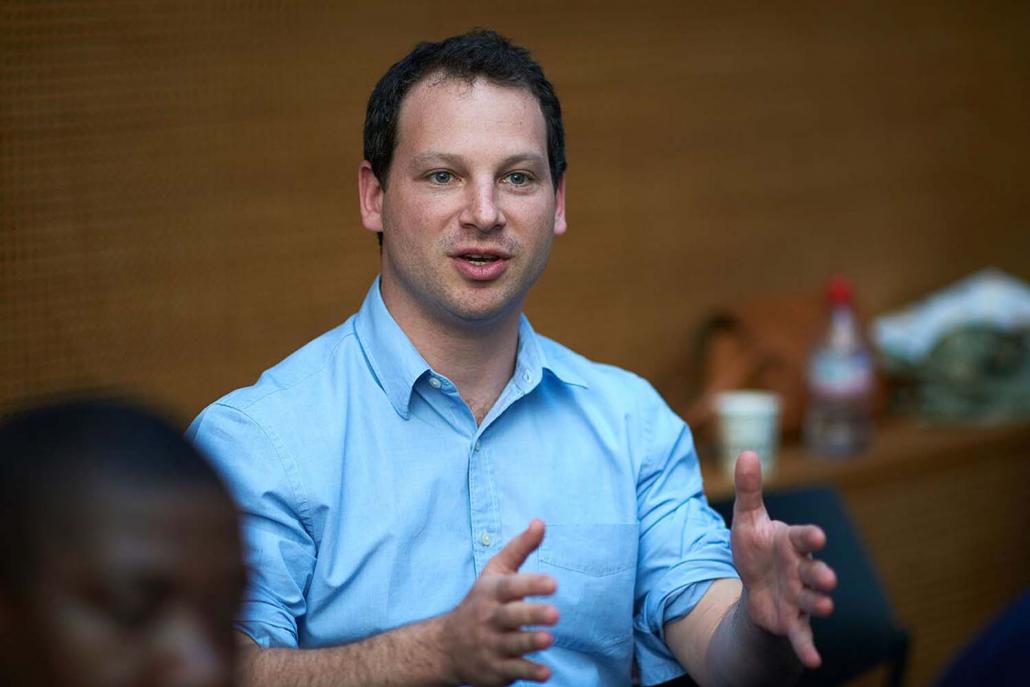
Mr Andrew Bauer, technical consultant at the Natural Resource Governance Institute
To what extent do you think there’s a recognition within the system that the system needs to change?
I think most civil servants are doing the best they can given their constraints and I don’t think there’s much incentive for them to improve the system themselves. Keep in mind that civil servants in Myanmar make very little money. And there’s really no incentive for them to improve performance. The reforms have to come from above, that’s the only way it’s going to happen.
Would you say there has been progress on SOE reform during the first two years of the NLD government?
This government was left with a huge mess that’s a legacy of the past. I think this government has spent the first two years assessing the problems, trying to understand what’s been going on. The Myanmar government and Myanmar governance systems are some of the most opaque in the world, so they spent most of that time trying to figure out what was wrong, diagnosing the problem, and I think now are at the stage where solutions are being formed.
The new Minister for Planning and Finance, U Soe Win, is a board member of the Renaissance Institute. Is he committed to implementing the report’s recommendations?
The minister graciously launched our report in Nay Pyi Taw on Tuesday [July 10]. The minister, as part of Renaissance, has been kept in the loop and is well aware of the challenges faced in the sector. In terms of his eagerness to implement [reforms], you’d have to ask him. But the minister is extremely well informed.
Within the system, how much resistance is there to SOE reform?
It’s a very good question. I think that’s something we’ll find out if the government decides to make drastic changes … Our strong hope is they’ll pursue those reforms [in the report] but we’ll have to wait and see. All signs from this government are that they recognise this problem and they want to fix it. I’m optimistic that they will do the right thing.
One of the key issues – and perhaps the one that would be easiest or at least quickest to fix – is the use of Other Accounts and the huge profits that have accumulated at some SOEs. How do these accounts work and why are they a problem?
The way the system works right now is that 55 percent of the profit of the state-owned enterprises goes into their so-called Union Financial Account-Other Account, [which is] almost like a savings account, at Myanmar Economic Bank. The question that we should be asking is, is this the right allocation of resources? Should that money be held at MEB and be held as savings for state-owned enterprises? Or is a better use of that money for it to go to the treasury and then be allocated according to the budget into health, education and infrastructure? That’s the question we’re asking.
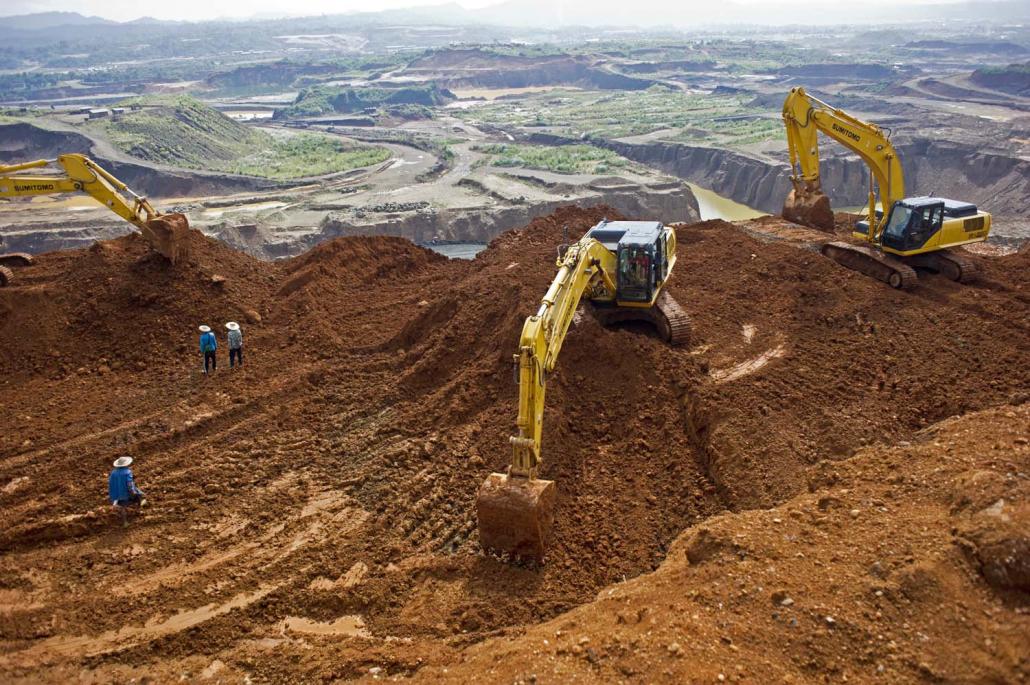
Heavy earthmoving equipment at a jade mine in Hpakant, Kachin State. The Myanmar Gems Enterprise is supposed to levy a 25 percent tax on all jade production, but in practice most of the jade is smuggled or heavily undervalued. (AFP)
What’s the direct cost of putting these profits into non-interest bearing accounts?
The different SOEs have different amounts in those Other Accounts. Based on our latest figures for example [from January 2017] the Myanma Oil and Gas Enterprise has K5.4 trillion. That doesn’t accumulate interest. A normal savings bank in the West would accumulate one or two percent [a year] on US dollars. When you have that much money, that’s a significant loss. But I think a bigger issue is the opportunity cost. How else could that money be spent? And most importantly, should it be spent in an accountable, transparent way as approved by parliament?
Do we know how that money kept at MEB is being used?
MEB has two roles: it has a treasury role and a lending role. We know about its treasury responsibilities – meaning, we know that this SOE money is an asset of the SOEs and a liability of the MEB. But we don’t know much about their lending role. Further research is needed.
Who is MEB accountable to on that lending role?
MEB is a state-owned enterprise. Like all other state-owned enterprises, it is accountable to its line ministry, which in this case is the Ministry of Planning and Finance, and it is regulated by the Central Bank of Myanmar.
If management of SOE profits is reformed ahead of the next fiscal year, which begins on October 1, what impact could it have on the budget?
As the Ministry of Planning and Finance has always said, reallocating this money from SOEs to other ministries rather than MEB would not have an impact on the ultimate deficit figure, because MEB money is also considered part of the budget. But that is an accounting issue. What we’re concerned about is not accounting – it’s the impact of that money on people’s lives. If the money were allocated in the right way, it can have a massive impact – and an immediate impact – on people’s lives.
Why did the U Thein Sein government introduce the Other Accounts?
The idea behind the 2012 reforms to transfer a large proportion of the profits of SOEs to MEB was to make state-owned enterprises financially independent. Unfortunately that’s not what occurred. Putting money from a state-owned enterprise into a savings account does not make it perform better; if anything, it’s just the opposite. But I wouldn’t say the 2012 changes made it worse; I would say they didn’t change anything at all. They did not achieve their objective in any way, and it’s questionable whether they were designed to.
What should have happened is that SOEs should have been subject to better oversight, more transparency, and they should have been given the tools that they need to succeed. We think that policy was not the right policy for achieving that objective. Just the opposite – what’s happened is that there are several SOEs that have become less accountable over the last few years, since the 2012 reforms but before the NLD came into power.
How have these enterprises become less accountable?
These SOEs – the shipyard enterprise, the railways, Myanmar National Airlines, Yangon and Mandalay electricity corporations – they are now fully off-budget. What happened, based on our understanding, is that they took their assets with them and they placed their liabilities on the government balance sheet. We’re talking about billions and billions of dollars being transferred.
One of the things that’s very worrying for us is that while these SOEs are still part of the government budget and they’re still part of the system, there’s a lot less oversight over their activities than there was before, which means that managers can do a lot within these enterprises that nobody knows about. One of our worries is that more of the SOEs will be placed off-budget and therefore they’ll have less accountability, when they actually need much more.


